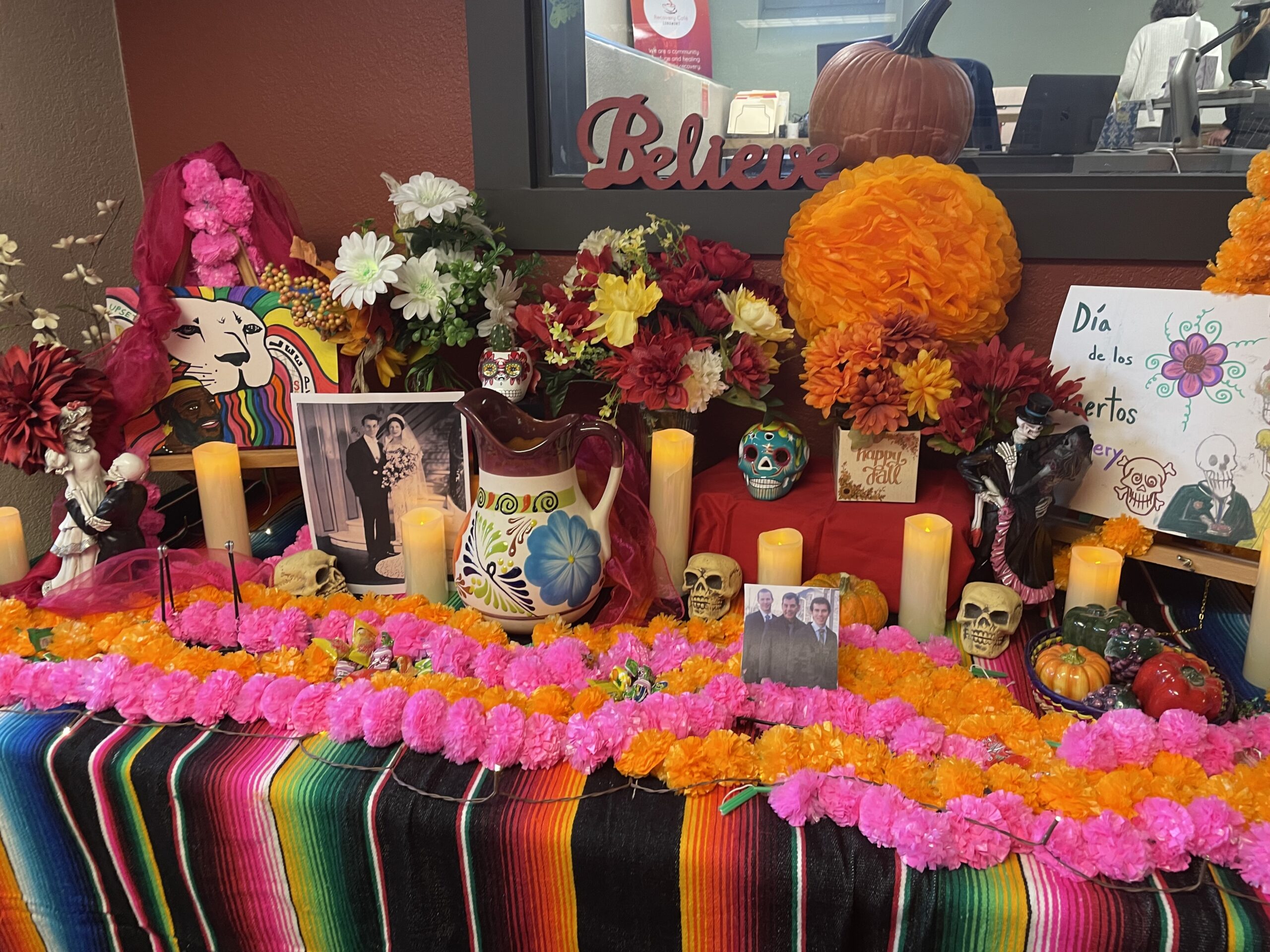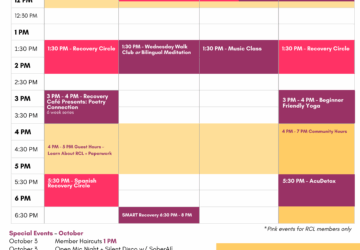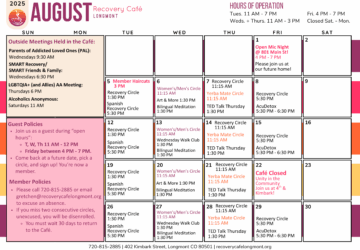With Lisa Searchinger heading up the organization, Recovery Café Longmont was born, opening in 2019 and creating a warm haven for the town and the broader Boulder County area. But, early on in opening the Café, Searchinger recognized they weren’t reaching a large segment of the community.
“It became very obvious in our first year of operations that we were not able to meet the needs of the Spanish-speaking population,” Searchinger said.

(Photos courtesy of Recovery Café Longmont.)
About 25% of the residents in Longmont are Latino/x, and Searchinger knew the Café would need to take a proactive approach.
Building a program from scratch
The Café secured a grant to support bilingual programming and hired a peer support specialist, Felicia Perez-Wright, who could speak the language and connect with the community.
“What I’ve been trying to do is just make people realize that it’s ok to ask for help.” Perez-Wright said. “I feel like it’s good for me to be transparent and vulnerable enough to see that these struggles are real and it’s ok to ask for help and it’s ok to admit that these challenges exist.”
Perez-Wright was inspired to become a peer support specialist because of her own recovery journey and personal experience as a biracial Latinx community member — and the transformative experience of working with a peer support specialist who walked alongside Perez-Wright on her healing journey.
“Something that made all the difference was the peer support specialist I worked with,” Perez-Wright said. “Her lived experience and just the connection I made with her was a tie-breaker for me. She really inspired me to do the same for other people.”
Perez-Wright brought this passion to her new role, which as the Café developed this programming, had unique challenges and opportunities.
First of all, it was brand new-programming directed at communities that already had limited direct outreach from organizations. Additionally; documents, materials, signage, and fliers the Café used were in English and needed translation.
Perez-Wright began translating documents, doing direct outreach with Spanish-speaking community members, networking with partner organizations and agencies, and making the Café a more inviting place to Spanish-speakers. She put Spanish-language posters and artwork from Mexico on the walls. She helped organize events to celebrate holidays resonant with Spanish-speaking communities, like Dia de los Muertos. She organized a meal at the Café with catering donated by a local Mexican restaurant.
Perez-Wright pointed out that the significance of her role isn’t just in translating English to Spanish, but in her connection and deep understanding of the Latino/x community. The bicultural component of her title is significant. When she did direct translations of documents the Café used, monolingual and bilingual Spanish speakers pointed out that the verbiage was not accessible, so she made adjustments to the translation accordingly.

(Photos courtesy of Recovery Café Longmont.)
How one Café can change the broader community
Perez-Wright’s expertise has quickly made her an asset, not just to the Café, but to the whole community. Her translations also served to kick off the RCN’s work to provide translated documents to the whole Network.
“Now in the last few months she’s been going out with two of our partner street outreach teams as the only bilingual outreach person. We are able to reach some folks — mostly people who are experiencing homelessness — and connecting with some of our referral partners doing outreach,” Searchinger said.
As the team has honed in their bilingual/bicultural programming, the biggest challenge has become obvious, and even energizing.
“One person cannot meet the needs of the whole community,” Searchinger said.
Perez-Wright has rapidly become the go-to person for Spanish-speaking Members and partner organizations and agencies trying to do Spanish-language outreach. So, to make the programming sustainable, the Café is building their capacity for bilingual/bicultural programming. As RC Longmont builds up it’s bilingual/bicultural peer support program, Perez-Wright expresses pride and optimism.
“Not only (are we) able to bring more Spanish-speaking people (into the Café) and actually living up to our Guiding Principles, (but we’re) also helping the Latinx culture as well,” Perez-Wright said.
Courtesy of the Recovery Café Network. The Recovery Café Network is committed to nurturing groups seeking to start recovery communities based on the Recovery Café model. Through a cohort learning model, groups and organizations will be provided mentorship, materials, expertise, and facilitated learning experiences to create a recovery community in their area. The Network is committed to helping those who join the Network as an Emerging Member be successful in starting their program, building recovery capital in their communities, and becoming certified as Full Members of the Network. Recovery Café Longmont is a full member of the RCN.



